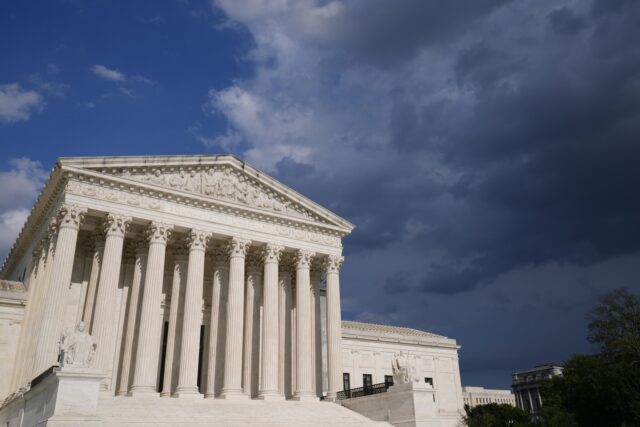The Supreme Court has rejected a challenge to Hawaii’s gun-licensing law, though three justices expressed a willingness to hear arguments over the issue later
Supreme Court rejects appeal challenging Hawaii gun licensing requirements under Second AmendmentBy LINDSAY WHITEHURSTAssociated PressThe Associated PressWASHINGTON
WASHINGTON (AP) — The Supreme Court rejected a challenge to Hawaii’s gun-licensing law on Monday, though three justices expressed a willingness to hear arguments over the issue later.
The majority did not explain their reasoning in a brief order declining to take the case. But Justice Clarence Thomas, joined by Justice Samuel Alito, wrote that he would vote to hear a case to “reaffirm that the Second Amendment warrants the same respect as any other constitutional right.”
In a separate statement, Justice Neil Gorsuch said the court could later revisit the case of Christopher L. Wilson, who argues his Second Amendment rights were violated when he was charged with carrying a gun without a license.
The statements come as many conservative-leaning states drop requirements for people to get licenses to carry guns in public. Wilson’s attorney, Benjamin Lowenthal, indicated the issue may not be over. “The constitutional problem persists in our state. And as long as the constitution problem remains, there will be constitutional challenges.”
Wilson was charged in Hawaii, whose licensing laws at the time were among the country’s strictest. Prosecutors say he was found hiking on private property at night with a handgun tucked into his waistband in 2017.
Wilson fought the charges, citing the Supreme Court’s landmark 2022 decision that expanded gun rights and led to upheaval in the nation’s firearms law landscape. A state court judge agreed and threw out the case.
But Hawaii’s highest court revived the case in a blistering opinion, calling the 2022 Supreme Court decision “fuzzy” and “backward looking” over its requirement for modern gun laws to be rooted in the country’s historical regulations.
Wilson appealed to the nation’s highest court. He asked the justices to toss out the Hawaii Supreme Court decision, arguing those justices flouted the high court’s opinions in favor of state handgun licensing rules that were, he said, too strict at the time.
Prosecutors argued that the case came under state law, so the Hawaii Supreme Court had jurisdiction. They also pointed to Justice Brett Kavanaugh’s concurrence to the U.S. Supreme Court decision expanding gun rights. Joined by Chief Justice John Roberts, Kavanaugh wrote that the opinion didn’t prevent states from having licensing requirements.
Hawaii has since changed its gun licensing system to remove an approval requirement for firearm licenses.
____
Associated Press writer Jennifer Sinco Kelleher in Honolulu contributed to this report.

COMMENTS
Please let us know if you're having issues with commenting.